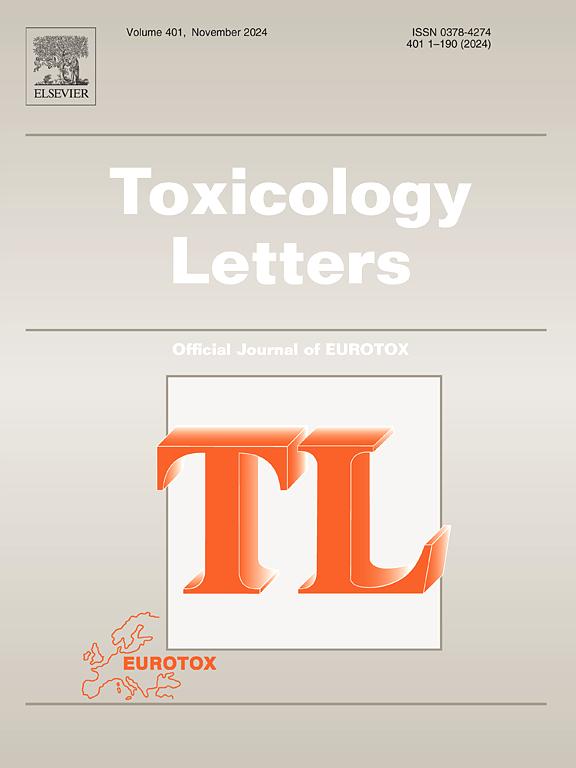S12-02 Promises and Challenges of Toxico-Epigenomics: Environmental Chemicals and Their Impacts on the Epigenome and Cancer Risk
IF 2.9
3区 医学
Q2 TOXICOLOGY
引用次数: 0
Abstract
Recent years have witnessed a remarkable pace of discoveries in epigenetics which have revolutionized our understanding of complex human diseases. The spectacular advances in epigenomics that allow the analysis of the epigenome with unprecedented resolution in high throughput and genome-wide settings have further accelerated investigations in this area. The challenge posed by major international sequencing efforts is to identify changes in the (epi)genome that precede and promote tumour development, and to differentiate functionally important (“drivers”) from non-functional “passenger” events. In addition, there is little understanding about whether epigenetic changes can be used as biomarkers for exposure assessment, risk stratification, and early detection. The epigenome has been proposed to function as an interface between environmental factors and the genome, therefore, the identification and functional characterization of epigenetic events deregulated by specific environmental and lifestyle stressors should enhance our understanding of mechanisms of carcinogenesis linked to risk-factor exposures. The intrinsic reversibility of epigenetic changes represents a tremendous opportunity for the development of novel strategies for cancer treatment and prevention. I will discuss recent conceptual and technological advances in epigenetics and ongoing efforts aiming to identify epigenetic targets that could be exploited in cancer prevention and therapy as well as molecular epidemiology. I will also discuss the issues related to opportunities and challenges in the application of epigenetic testing in carcinogen identification and evaluation.
毒物表观基因组学的前景与挑战:环境化学物质及其对表观基因组和癌症风险的影响
近年来,表观遗传学的发现取得了显著进展,彻底改变了我们对复杂人类疾病的理解。表观基因组学的惊人进展使表观基因组分析在高通量和全基因组设置下具有前所未有的分辨率,进一步加速了这一领域的研究。主要的国际测序工作所带来的挑战是确定在肿瘤发生之前和促进肿瘤发展的epi基因组变化,并区分功能重要的(“驱动因素”)和非功能的“乘客”事件。此外,对于表观遗传变化是否可以作为暴露评估、风险分层和早期检测的生物标志物,人们知之甚少。表观基因组被认为是环境因素和基因组之间的接口,因此,对特定环境和生活方式压力源解除调控的表观遗传事件的识别和功能表征将增强我们对与风险因素暴露相关的致癌机制的理解。表观遗传变化的内在可逆性为癌症治疗和预防的新策略的发展提供了巨大的机会。我将讨论表观遗传学的最新概念和技术进展,以及旨在确定表观遗传学靶点的持续努力,这些靶点可以用于癌症预防和治疗以及分子流行病学。我还将讨论表观遗传检测在致癌物鉴定和评估中的应用所面临的机遇和挑战。
本文章由计算机程序翻译,如有差异,请以英文原文为准。
求助全文
约1分钟内获得全文
求助全文
来源期刊

Toxicology letters
医学-毒理学
CiteScore
7.10
自引率
2.90%
发文量
897
审稿时长
33 days
期刊介绍:
An international journal for the rapid publication of novel reports on a range of aspects of toxicology, especially mechanisms of toxicity.
 求助内容:
求助内容: 应助结果提醒方式:
应助结果提醒方式:


